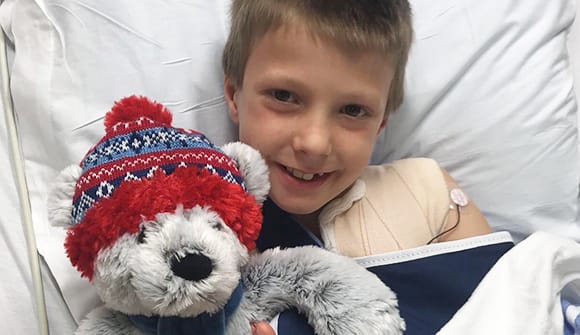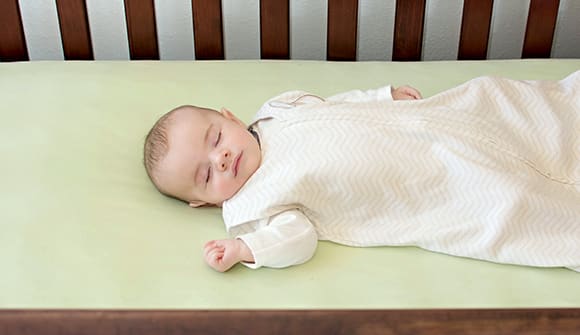A brand new rhythm
Southwest Georgia boy finds new beat on life after doctors discover rare heart rhythm disorder.
Article Date:

In September 2019, the Smith family of Moultrie, Georgia, was enjoying a Sunday outing at Wild Adventures theme park in Valdosta. Their family fun quickly ended when Rylan, 9, had a seizure and collapsed while at the bungee jumping attraction.
"We were so worried about him," said Rylan's mom, Chantel Smith. "Rylan is an active kid and constantly on the go, playing baseball, football and dancing hip-hop. Normally, you can't stop him."
Rylan was taken to the Emergency Room at a local hospital, where doctors examined him. They monitored his vital signs and gave him fluids for dehydration before he was discharged.
Four days later, a second incident occurred. Rylan, a third-grader at Odom Elementary School, collapsed again while at school. He was taken to the ER at a different local hospital. Doctors ordered a CT scan and MRI, and the results were abnormal. They recommended Rylan be transferred to a children's hospital for specialty care.
"As a nurse, I was familiar with Wolfson Children's Hospital and I immediately knew that's where I wanted Rylan to go," said Smith.
World-class pediatric cardiology care
Rylan was transferred by Kids Kare Mobile ICU to Wolfson Children's Hospital of Jacksonville, which provides specialized pediatric cardiac care for children in North Florida, South Georgia and beyond.
Upon arrival, a pediatric electrophysiologist performed heart arrhythmia diagnostic testing after reviewing Rylan's personal and family medical history and completing a physical examination. The testing included an electrocardiogram (EKG) and an epinephrine drug challenge to evaluate Rylan's heart's electrical activity and pathways.
The diagnosis: Long QT syndrome
Following testing, Rylan was diagnosed with long QT syndrome, a rare heart disorder that can cause fast, chaotic heartbeats. With this condition, the heart's electrical system takes longer than normal to recharge between beats. The defect causes a delay which can lead to fainting, seizures or even sudden death. Some people are born with a genetic mutation that causes long QT syndrome, while others acquire it from certain medications, mineral imbalances or medical conditions. There is no known cure at this time.
"It was an alarming diagnosis, but I was thankful because the Wolfson Children's team knew immediately what was wrong with my son," said Smith.
Rylan was prescribed a beta-blocker medication to help his heart beat slower. He remained in Wolfson Children's Cardiovascular Intensive Care Unit for three days for observation and genetic testing.
Life-saving monitoring and care
Rylan returned to Wolfson Children's Hospital in October 2019. Then, he underwent an outpatient procedure to get a small cardiac monitor inserted under the skin of his chest. The monitor tracked his heart rhythm and wireless communications allowed data from the device to be transmitted in real-time, around the clock, to his care team.
That December, Rylan had an automated implantable cardioverter-defibrillator (AICD) placed in his body. The AICD works like a life-saving pacemaker but can also detect dangerous heart rhythms and perform defibrillation, shocking the heart back to normal. The AICD monitors the heart via a wire that extends from the device to the inside of the heart. Activity can then be monitored remotely by his doctors via a secure web-based satellite connection from any location in the world.
"The heart team at Wolfson Children's was wonderful," said Smith. "They answered all my questions and kept me informed throughout Rylan's surgery."
Rylan continues to receive follow-up care with Wolfson Children's C. Herman and Mary Virginia Terry Heart Institute. While he is restricted from playing competitive sports and has to limit contact sports, Rylan is able to enjoy most of his normal recreational activities. He will have to have the AICD battery replaced every 10 years.
Trust your child's heart to us
The Wolfson Children's C. Herman and Mary Virginia Terry Heart Institute provides life-saving pediatric cardiovascular care for children of all ages, along with adults born with heart defects. For more information on pediatric cardiology and heart surgery services, call 904.202.8550.
This story was originally published in June 2020.



